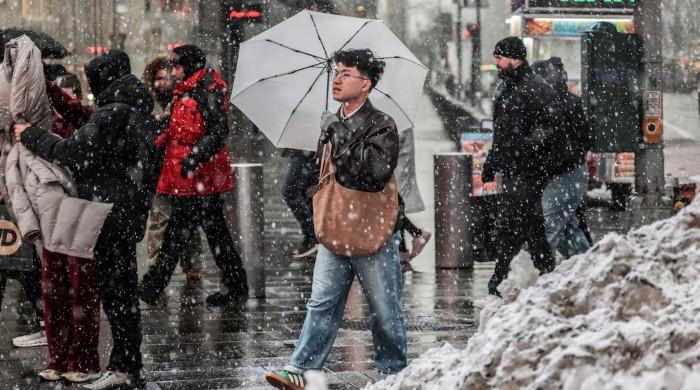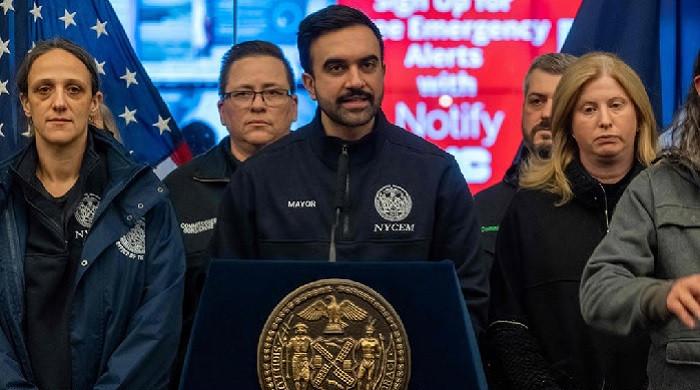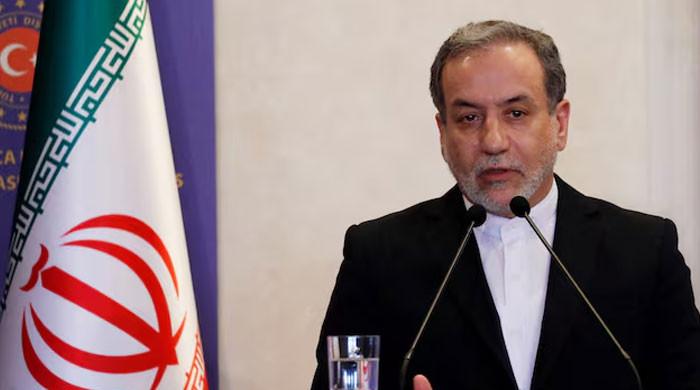‘Equations, not invasions’: Over 40,000 march for science in Chicago
‘The tides are rising and so are we!’ one of the placards read
April 23, 2017

CHICAGO: Walking to the tunes of numerous science-y chants, thousands of Chicagoans thronged the city’s streets early Saturday morning – Earth Day – to emphasise the importance of fact-based research and how it sheds light on global issues that urgently need to be focused on.
Demonstrators, including scientists, science enthusiasts, and nerds, started at the Congress Parkway and Plaza Drive intersection and strode to the Museum Campus, near Lake Michigan.
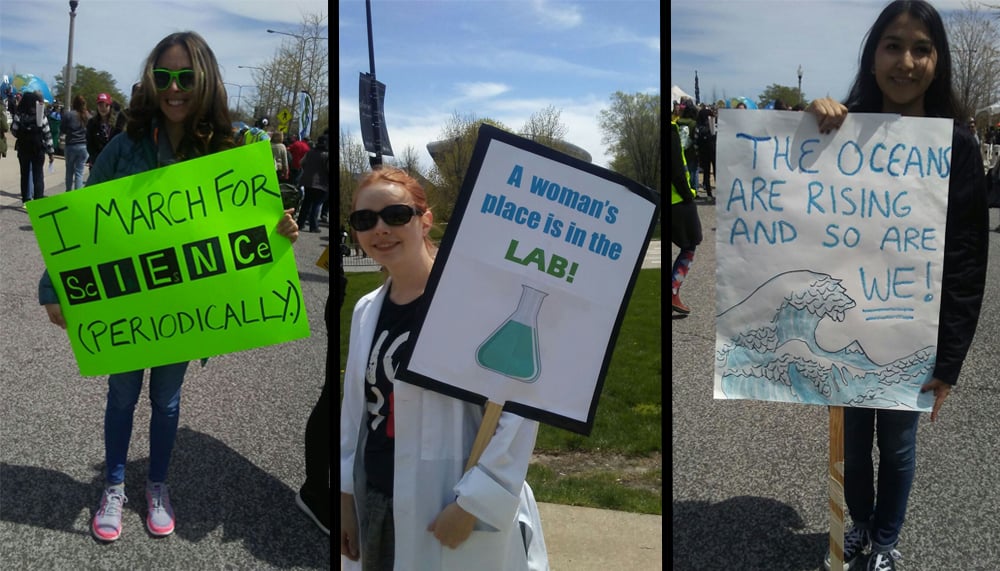
‘The tides are rising and so are we!’ one of the placards read.
Indeed, sea level has risen 88.2 millimetres as of January 4, 2017, according to NASA’s Global Climate Change website. The increasing water level in oceans around the world is a major global warming threat, caused by melting ice and “expansion of sea water as it warms”.

It’s important to talk about science due to the fact that it has been politicised now, says Anthony, a programmer who joined the march. “[We have] to counter the negative marketing implications that people have tried to fasten on to it, whether it be climate change or evolution,” he explained.
Anthony’s solution to the “negative stigma to [science] from time to time here in America” is to develop “a pro-science politicalisation”. He underscored how the country originated with this field, adding that Benjamin Franklin – one of the founders of the US – was a man of science.

Plus, President Donald Trump last month proposed to withdraw financing from the National Endowment for the Arts (NEA) and the National Endowment for the Humanities (NEH), which is likely to prove to be a hurdle in exploring creativity. In his article today, National Geographic’s Simon Worrall says defunding will make getting along challenging, and “make war more likely,” considering how certain nations are engaged in rapid-fire comments to show their power over each other.
Anthropologist Augustín Fuentes agrees, as he stated that it will “rob humanity of imagination and creativity and hobble us in our capacity to get along and make a difference in the world.”
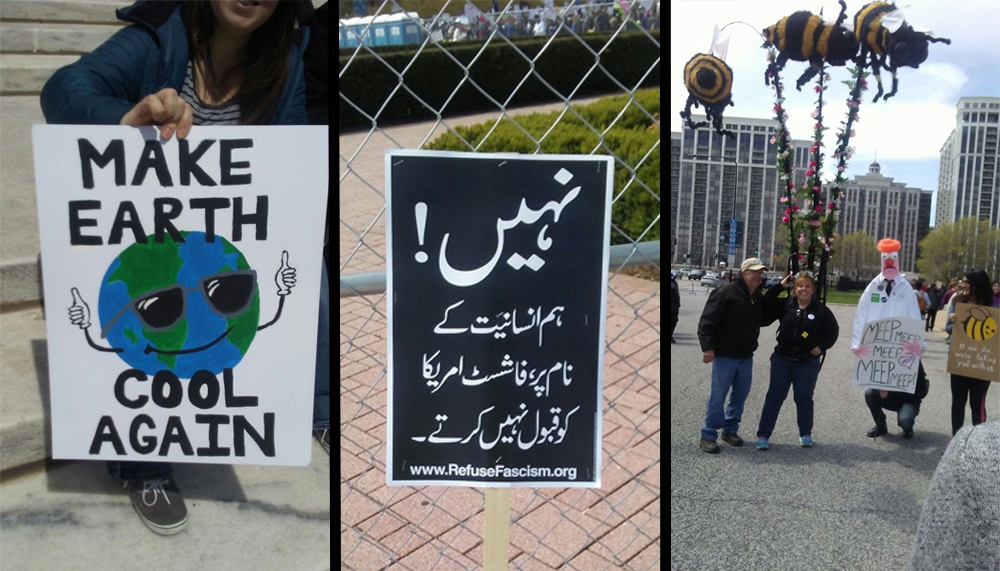
In addition, making school-level studies more inclusive of science is an important goal to achieve, as it helps children understand the world as it is today and also encourages them to pursue those fields that may contribute to bettering the world.
Bill Nye, a mechanical engineer and TV personality, once said, “If you don’t believe in science, then you’re holding everybody back. [...] If we educate a generation of people who don’t believe in science, that’s a recipe for disaster.”

Image courtesy: Jen Bodine (left); Scott McCarthy (right)
Osama Al-Sayyad – a graduate of Illinois Institute of Technology who was part of the walk in Chicago – stressed on the phrase “data over dogma,” which is what he believes in. He joked that he had some free time to drop by.
On the other hand, Jodie, a molecular biologist who has worked for cancer research and food science, believes the science has never really had a voice and wants to represent women in the field. “In the current political environment, which is very hazy, it is important for people to be out here,” she added.
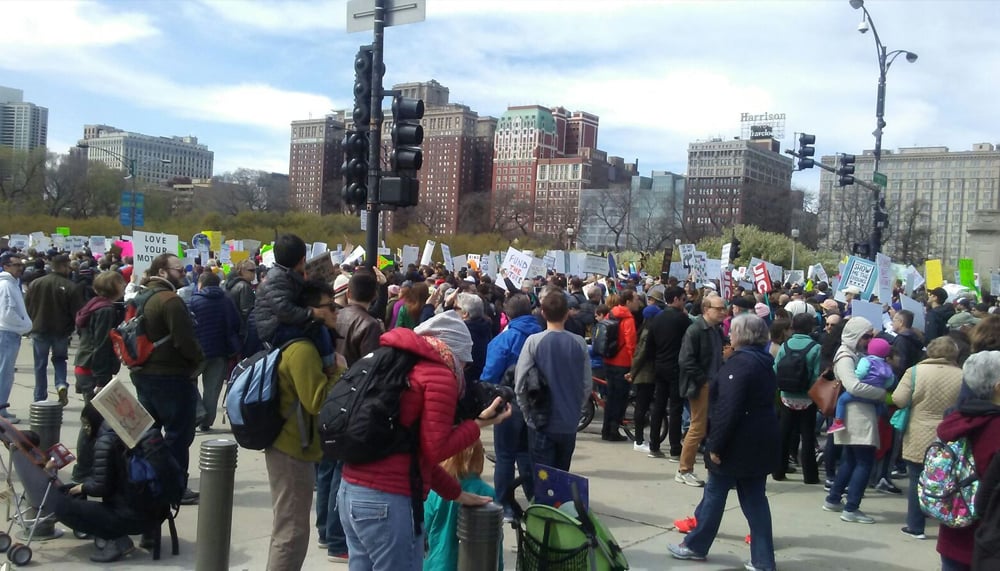
Rough estimates indicate that more than 40,000 people turned up to support scientific research and highlight problems the world faces at present. A marching band was also present in the walk, playing numerous songs, including This Little Light of Mine and The White Stripes’ Seven Nation Army.
It was a commendable effort, according to the scientists participating in the march, quite akin to the Women’s March that took place back in January this year. People have been observing the change that is making way under the new American leadership, and many think it is time to get out of the comfort of their homes to make their voices heard.
—Photos by Hafsa Said





